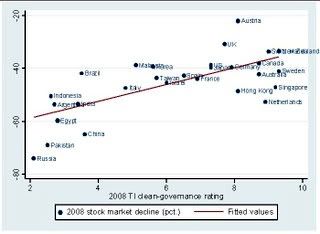When The Savior Fails to Show
- Anonymous correspondent, quoted by James Delingpole in The Spectator.
Anne Applebaum of The Washington Post has an interesting point of departure:
The rejoicing was not entirely unanimous, of course, not least because the frothy media coverage itself provoked some backlash. One British friend told me that while he'd enjoyed watching the inauguration, "this salvationist acclaim for a political redeemer worries me, since it shows the depth of the almost universal despair." Similar rumblings were heard elsewhere.
Indeed. So powerful is the commercial and military might of the United States still (despite prophecies of looming decline) that people not just in the U.S. but in other countries look to him as someone who can magically conjure up solutions to solve their main problems in life – diplomatic, financial, environmental, and even personal.
Leave aside that there are some places – India, most prominently – where our new President is greeted as much with skepticism as with hope. Why would the President of the United States be in a position to be the savior he is expected to be? Government by its very nature cannot solve most problems effectively. A few – market failures properly defined – it can, but does not necessarily, solve better than individuals pursuing their self-interest. But typically, government attempts to address problems beyond its sphere of minimal competence – to end the Great Depression (which was only Great in the U.S., where government efforts to address it through new and innovative methods were the greatest), to fix family breakdown, to prevent the poorly understood mechanics of the incredibly complex global climate system from going in one bad direction or another, to get beyond the human politics that has been in operation, and understood, for millennia, to fix people's health problems, and on and on – actually make these problems worse. The first questions to always ask when the messiah comes bearing the seal of the Office of the President of the United States ought to be, “Will these things you propose actually solve these problems, and what is the historical evidence for this claim?”
Even if the President of the United States had such a divine capacity to predict the future and push all of the necessary societal buttons to force people to act against their interests so that allows he can fulfill his promises, the Constitution (wisely) limits his power to do these things. He must negotiate the opposing interests he faces in Congress, some even in his own party, and he must do things that the Supreme Court will allow. He has no ability to move mountains. It is perhaps a sign of end-stage corruption of government by democracy alone that we believe the government can do anything, and if it fails to do so it must be the fault of some Enemy - some Emmanuel Goldstein marshaled up for the occasion. If people not just in Santa Monica and Akron but in Britain, France, Mexico and Indonesia are waiting for President Obama to make it all right, we are headed for a very angry time.

